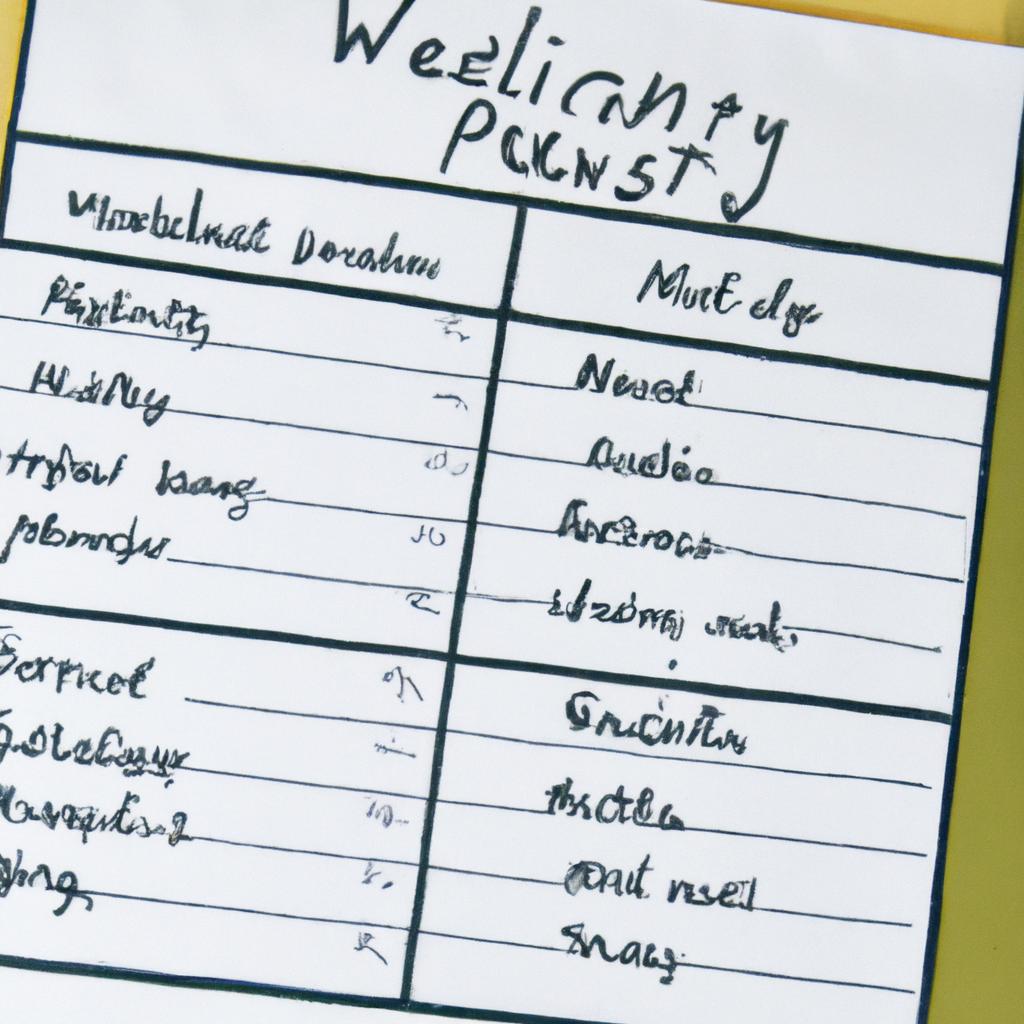Meal Planning for Mental Well-Being: How to Create a Weekly Menu that Supports Emotional Health and Reduces Stress
# Meal Planning for Mental Well-Being: How to Create a Weekly Menu that Supports Emotional Health and Reduces Stress
In our fast-paced world, stress and anxiety have become commonplace, often leading to emotional and physical health issues. One effective way to combat these feelings is through meal planning. By creating a weekly menu that prioritizes nutrition and emotional well-being, you can take control of your mental health. In this blog post, we’ll explore how to design a meal plan that supports your emotional health, along with nutrition tips, exercise advice, and the health benefits associated with mindful eating.
## Understanding the Connection Between Food and Mood
### The Impact of Nutrition on Mental Health
The food we consume plays a critical role in our overall mental well-being. Nutrient-rich foods can boost serotonin levels, the neurotransmitter responsible for feelings of happiness and well-being. Conversely, diets high in processed foods and sugar can lead to increased anxiety and depression. By understanding the connection between food and mood, you can make more informed choices when planning your meals.
### Identifying Stress-Inducing Foods
Certain foods can exacerbate stress and anxiety. Caffeine, sugar, and refined carbohydrates may lead to mood swings and energy crashes. Being aware of these foods will help you replace them with healthier alternatives that promote emotional stability.
## Creating Your Weekly Menu
### Prioritizing Whole Foods
When designing your weekly meal plan, focus on whole, unprocessed foods. This includes fruits, vegetables, whole grains, lean proteins, and healthy fats. These foods are packed with essential vitamins and minerals that nourish both the body and mind.
### Incorporating Mood-Boosting Ingredients
Certain foods are known to have mood-enhancing properties. Incorporate the following into your weekly menu:
– **Fatty Fish**: Rich in omega-3 fatty acids, which can help reduce anxiety.
– **Leafy Greens**: Spinach, kale, and other greens are high in folate, essential for mood regulation.
– **Berries**: Packed with antioxidants, they can help protect against oxidative stress.
– **Nuts and Seeds**: These provide healthy fats and magnesium, which have been shown to reduce anxiety.
### Structuring Your Meals
Aim for balanced meals that include a source of protein, healthy fats, and complex carbohydrates. This balance helps maintain steady blood sugar levels, reducing mood swings. Consider batch cooking grains and proteins at the beginning of the week to simplify meal preparation throughout the week.
## Nutrition Tips
1. **Stay Hydrated**: Dehydration can lead to fatigue and irritability. Aim for at least eight glasses of water a day.
2. **Limit Processed Foods**: Try to limit foods high in sugar and additives, as they can negatively impact your mood.
3. **Mindful Eating**: Practice being present during meals. Chew slowly and savor each bite to enhance your eating experience.
4. **Plan for Snacks**: Include healthy snacks like veggies, hummus, or yogurt to keep your energy levels consistent.
## Exercise Advice
### The Role of Physical Activity in Mental Health
Exercise is a powerful tool for reducing stress and improving mental well-being. Regular physical activity releases endorphins, which act as natural mood lifters. Here are some suggestions for incorporating exercise into your routine:
1. **Set Realistic Goals**: Aim for at least 150 minutes of moderate aerobic exercise each week. This could include walking, swimming, or cycling.
2. **Incorporate Movement into Your Day**: Take the stairs, walk during breaks, or engage in activities that require movement.
3. **Choose Activities You Enjoy**: Whether it’s dancing, yoga, or hiking, finding joy in exercise will make it easier to stay consistent.
## Health Benefits
### The Positive Effects of Meal Planning on Mental Well-Being
1. **Reduced Stress Levels**: A well-structured meal plan can alleviate the stress of daily decision-making about food.
2. **Improved Mood**: Consuming nutrient-rich foods can lead to enhanced mood and emotional resilience.
3. **Increased Energy**: Balanced meals provide sustained energy, preventing the fatigue that often leads to irritability and stress.
4. **Better Sleep**: Certain foods and a consistent meal schedule can promote better sleep patterns, which are crucial for mental health.
## Conclusion
Meal planning can be a transformative practice for enhancing mental well-being. By prioritizing whole foods, incorporating mood-boosting ingredients, and maintaining a balanced diet, you can create a weekly menu that not only nourishes your body but also supports your emotional health. Coupled with regular exercise and mindful eating practices, you can significantly reduce stress and improve your overall quality of life. Ultimately, taking control of your nutrition is an empowering step towards achieving better mental health and emotional stability.















Post Comment